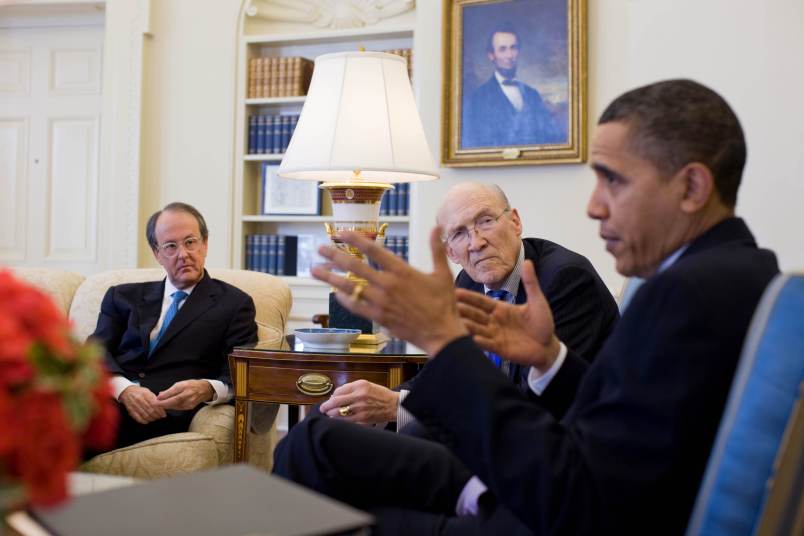The White House’s fiscal commission has become a target for progressive activists in large part because a number of reports and public statements indicate that the panel will recommend benefit cuts to Social Security. Most of the backlash has come from critics calling on the commission’s co-chair, Republican Alan Simpson, to resign over controversial public statements he’s made about the popular program.
But the commissioners are also grappling with another sensitive entitlement program: Medicare. For a number of reasons, the commission is farther from consensus on Medicare than it is on Social Security: Medicare is a more unwieldy program; the commissioners differ wildly on how to prevent its soaring costs from bankrupting the government; and members have already had a working group meeting dedicated to Social Security in isolation. But the ideological conservatism of the Republicans on the commission — and, indeed, of the commission as a whole — combined with Democratic fatigue over health care reform mean that the center of gravity of discussions is tilted to the right.
“[B]asically you’ve got some Dems saying they don’t want to jump back in the [health care reform] pool, so you’ve mainly got Republicans swimming in there on their own,” says one source familiar with the commission’s proceedings.
“[Senate Finance Committee Chair Max] Baucus has kind of come in and basically said, ‘we’ve just done health care,'” a second source tells TPM. The sentiment echoes that of other Democratic commissioners. “We’ve done health care, we can’t do much more.”
That leaves rigid conservatives like David Camp and Paul Ryan — the GOP’s top budget guy and author of a plan to turn Medicare into a voucher program — at the top of the rhetorical heap. As a result, according to the second source, the commission’s focus reflects their priorities much more than progressive ones.
“There have been some discussions about cost-sharing. There have been some discussions about Medi-gap policies,” the source says.
At a staff level, this source says, the feeling is that “there needs to be more skin in the game and people need to pay more…the whole argument that people don’t understand how much health care costs and are wasteful.”
“A lot of discussion on the commission has been that people need to get better price signals and be smarter shoppers,” the second source said. “And that is very, very worrisome.”
“The solutions that you come up with on health care are determined by what you identify as the problem,” the source said. “If you think the consumers are the problem, then you’re going to come up with a set of answers that include vouchers and higher cost sharing and that’s a problem. If you believe that the problem is the system, then you look at systemic issues…. If you believe that the only thing you really care about is federal spending, then come up with proposals that shift costs on to businesses and individuals and maybe local governments.”
The news isn’t all bad, however. For instance, progressives on the commission have put forth suggestions — to including ones to lower the price of prescription drugs and create a public health insurance option — that are on a long list of policy proposals (including conservative ones) that staffers will soon pare down.
It’s also perfectly possible that the commission will only be able to reach a partial consensus, and if that happens, their recommendations might not touch on Medicare at all.
“There has not been a lot of discussion about what happens — do you have to have an agreement on everything?” the second source said. “If you can reach an agreement on one thing it sets up the dynamic where you can reach an agreement on other things.”
The commission’s mandatory spending working group will get down to brass tacks on Medicare when they meet again next week.






